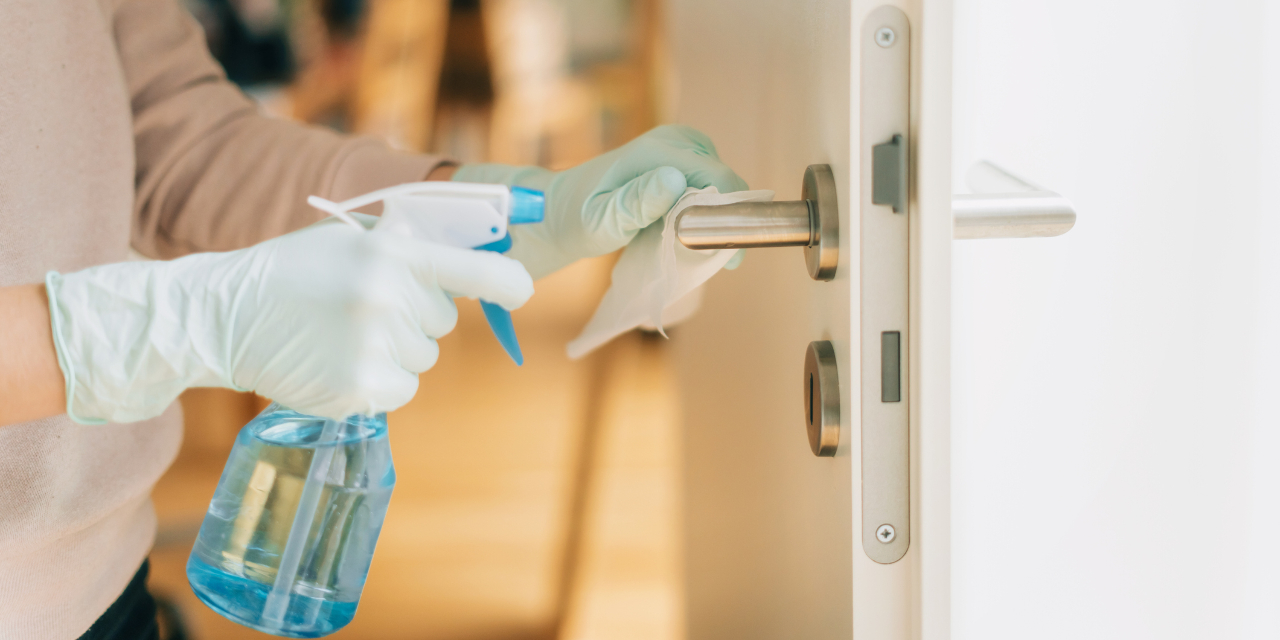It's a big ask to wipe down everything in sight to avoid bringing COVID-19 home, but having a strategy will keep it manageable, says a University of Alberta expert.
"It's all about risk management," said virologist David Evans. "Think about your process to minimize cross-contamination once you're in the house. Ask yourself what you are touching and how to keep it clean, and avoid touching your face."
All the fuss really is necessary because the virus spreads easily, he added.
He said the coronavirus that causes COVID-19 is spread by the droplets and sputum people are coughing up. That spreads out on surfaces and is transmitted between people.
"So someone coughs into their hand, then touches a doorknob and it spreads really easily," explained Evans.
"One person can give it to two more, then two give it to four, four to eight and so on. That exponential function is something we really want to stop, and one of the ways to do that is through good cleaning measures."
He said cleaning and washing knocks the level of the virus below the point at which it can cause infections.
"When you wipe off your doorknobs, you've taken what could be a large load of the virus down to a small load," he explained.
The coronavirus is fragile, easily killed by soap and water, making it doubly important to develop a cleaning routine, he added.
"Viruses are wrapped in fatty envelopes essential for infectivity, but soap cuts through them like dish detergent on a greasy plate. It inactivates those viral membranes."
There's no simple answer to how long the virus lives on different surfaces like cloth, plastic, cardboard and metal since survival will vary, though research suggests the virus can live for up to 24 hours on cardboard and for up to 72 hours on other surfaces, including plastic.
Some surfaces like cardboard and cloth are less hospitable to viruses, Evans said.
"They absorb onto those materials, dry up and are inactivated, so they would disappear faster."
The Government of Canada lists household cleaners that can be used against COVID-19, Evans said. A diluted bleach solution will also work, and if you're facing store shelves sold out of hand wipes or hand sanitizer, use a wet cloth soaked in liquid soap.
Here's what to think about when safeguarding your home against COVID-19.
Shopping
When bringing groceries and other purchases into the house, wash your hands first, before and after putting things away to avoid picking up a load of virus off an item and then touching your face, which can cause infection.
Not everything needs to be wiped down, Evans suggested, since most items being handled would likely have a low virus load, which dies off as the items are put away to sit in the cupboard.
"Once the virus has dried, it's hard to get off a surface and spread through contact."
Wash off, rinse and dry any fruits and vegetables that would be eaten raw, using warm water with dish soap.
Leave cloth shopping bags at home for now.
"They can be washed, but out of caution for the time being, it's OK to use plastic. It helps protect staff bagging groceries," he said.
Doing laundry
It may not be necessary to wash clothing we wouldn't often launder, like coats or gloves, but it depends on the degree of contact with potentially contaminated surfaces.
"It comes down to how likely you are to pick up a big load of virus on an item and then get it on your face. Think about how much virus you've possibly put on that material. A coat probably would have a low amount of virus, and as it's sitting on the cloth, it's decaying," said Evans.
High-touch items like dishcloths, hand and kitchen towels should be changed daily.
Regular laundry detergent is adequate to kill the virus, even in cold water.
"Turn up the water temperature if you prefer, but there's no need to wreck fragile clothing," said Evans.
Housecleaning
The best way to keep your home clear of COVID-19 is by wiping things down behind you after walking in the door, Evans said.
"Think about that entry process, because that lessens the risk of bringing a virus in. Hang up your coat and then wash your hands before you do anything else in the house.
"Then think about what you've touched on the way in. Wipe down doorknobs, light switches, phones, keys.
"Once those commonly touched items are disinfected, viruses aren't going to reappear magically from nowhere, so you're fine."
